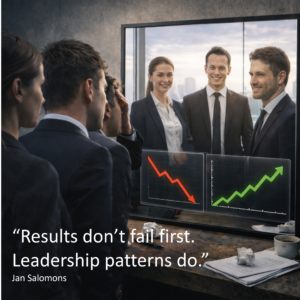Are you getting burned-out? Read this!
We often start a conversation by asking, “What do you do?” It seems harmless, but it shows how much our work has become part of who we are. Simone Stolzoff challenges this idea. He reminds us that when our identity depends too much on our job, we risk burnout, frustration, and losing balance in life.
His message is clear: your job should support your life, not define it. It’s okay to have a “good-enough” job if it gives you space to enjoy other parts of who you are—family, friends, hobbies, health, and growth.
In this post, I explore how we can change the way we see work—from something we worship to something we partner with. What would it look like if work served us, instead of the other way around? And what could that mean for how we live, lead, and find real success?
But watch the video first!
If you’re not on my blog, go here: TED Talk Simone Stolzoff on How to Reclaim Your Life from Work.
Reclaiming Your Life from Work
Why your job should support your life — not define it
By Jan Salomons | salomons.coach | The Leadership Compass (October 2025)
In his TED Talk “How to Reclaim Your Life from Work,” Simone Stolzoff explores this question with refreshing honesty. He reminds us that while work can give meaning, belonging, and purpose, it should never consume our entire sense of self. When it does, we risk losing balance, creativity, and even our relationships.
As someone who has spent decades leading teams, developing leaders, and coaching executives, I’ve seen this pattern often: good people become trapped in their own professional identity. They believe being busy equals being valuable. They work harder, stay longer, and expect fulfillment in return — but often, it doesn’t come. And yes, this also happened to my when I was 50 years old.
When work becomes identity
In today’s VUCA world — volatile, uncertain, complex, and ambiguous — work moves fast and expectations keep rising. Leaders must be agile, resilient, and always “on.” Many tell me they feel stretched between being the leader their team needs and the person they want to be outside work.
It’s a subtle shift that happens over time:
- We say “yes” to another project because it feels good to be needed.
- We check emails late at night “just to stay on top.”
- We cancel personal plans because “the timing isn’t right.”
Bit by bit, our work starts to define us. We stop asking what we need and start asking what the company needs — as if they were the same thing.
But they’re not.
The hidden cost
When our job becomes our identity, we give it power over our self-worth. A bad meeting can ruin our day. A critical email can shake our confidence. A missed target can feel like personal failure. I’ve coached leaders who said things like:
“If I’m not performing at work, I feel like I’m failing as a person.”
That’s a heavy burden.
And it’s not just personal. When leaders tie their identity too tightly to their job, it often trickles down to the team. They create cultures of overwork and perfectionism — where people compete to prove their value instead of collaborate to create value. In such environments, mistakes are feared instead of discussed, and people feel replaceable instead of respected.
What Stolzoff invites us to do
Simone Stolzoff’s message is simple but powerful:
“Let your job be a part of your life — not the whole story.”
He suggests we aim for what he calls a “good-enough” job — one that provides stability and meaning, but still leaves room for life outside work. That doesn’t mean lowering your ambition or caring less; it means caring wiser. It’s about building an identity that is larger than your business card.
In my own coaching practice, I often ask leaders:
- Who are you when you’re not working?
- What gives you energy outside of performance?
- If your job title disappeared tomorrow, what would still make you proud?
At first, many find these questions uncomfortable. But once they reflect, they rediscover parts of themselves they had forgotten — curiosity, creativity, humor, connection, or simply rest.
The leadership trap
Leaders are particularly vulnerable to the “work-as-identity” trap. We are rewarded for results, speed, and visibility. We’re told to be role models — but what we often model is overcommitment.
I once coached a senior manager who proudly said, “My team knows I’m always available.”
After some reflection, he realized what he was really saying was, “My team knows I have no boundaries.”
When leaders fail to protect their own balance, they unintentionally give permission for others to do the same. The result is a culture where exhaustion becomes a badge of honor and recovery feels like weakness.
From worship to partnership
Stolzoff invites us to move from worshipping work to partnering with it.
That’s exactly what modern leadership needs.
A healthy partnership with work means:
- You bring purpose to your job, instead of expecting your job to give you purpose.
- You manage your energy, not just your time.
- You allow space for life, knowing that rest and play make you more effective, not less.
When leaders model this mindset, they create psychologically safe teams where people can perform and grow — not at the cost of one another.
Exercise: The Circle of You
A practical reflection to help you reclaim life from work
This exercise helps you visualize where your energy goes today — and what might need to change to create more balance, meaning, and space for yourself.
Step 1 – Draw your circle.
Take a blank page and draw a large circle. This represents your whole life.
Step 2 – Divide your circle.
Inside the circle, draw slices like a pie chart showing how much space different parts of your life take right now.
Include areas such as:
- Work / Career
- Family & Relationships
- Health & Well-being
- Learning & Growth
- Friends & Community
- Creativity / Hobbies
- Rest & Reflection
Don’t overthink it — just estimate what feels true today.
Step 3 – Label your ideal circle.
Next to it, draw a second circle — your ideal one.
How would you like your energy and attention to be divided if life felt balanced and fulfilling?
Step 4 – Compare and reflect.
Ask yourself:
- Where do I see the biggest gaps between today and my ideal?
- Which parts of my life deserve more space?
- What am I doing out of habit, not choice?
- What would one small, realistic change look like this week?
Step 5 – Make one move.
Choose one simple action to start shifting your balance — for example:
- Block 30 minutes each evening for a walk without your phone.
- Schedule a “no-meeting” lunch break once a week.
- Reconnect with a friend you’ve lost touch with.
- Turn off work notifications after 19:00.
Write it down. Commit to it for two weeks.
Then, notice what changes — not just in your schedule, but in your energy, focus, and mood.
Reclaiming your life — one choice at a time
Reclaiming your life from work doesn’t happen overnight. It’s a practice — a series of small choices that, over time, shift the balance.
Here are a few reminders for the journey:
- Define your non-negotiables. Protect what truly matters.
- Measure success beyond work. Add personal metrics to your definition of achievement.
- Lead by example. Model balance, not busyness.
- Revisit your values. Align your daily habits with what you care about most.
- Celebrate “enough.” Sometimes, doing less is what makes you most effective.
The paradox of letting go
Interestingly, leaders who reclaim life from work often become better at their jobs. When you stop tying your identity to performance, you lead with more clarity and empathy. You start listening better, delegating more, and trusting your people to grow.
Letting go of the illusion of control creates space for creativity and authentic connection — the very things that fuel high performance in a VUCA world.
A question to leave you with
If your worth is not your work, who are you then?
Your answer to that question might just be the beginning of a new kind of leadership — one that values being as much as doing, and life as much as success.
Reflection for leaders:
What one boundary, habit, or conversation would help you reclaim more life from work — and what might that make possible for you and your team?
If you feel the need for some help, lets talk first to see if I can be of help – its free. You can book 30 or 45 minutes with me to have a critical conversation about your needs and how coaching could help. Just try!
Session Scheduler – salomons.coach




